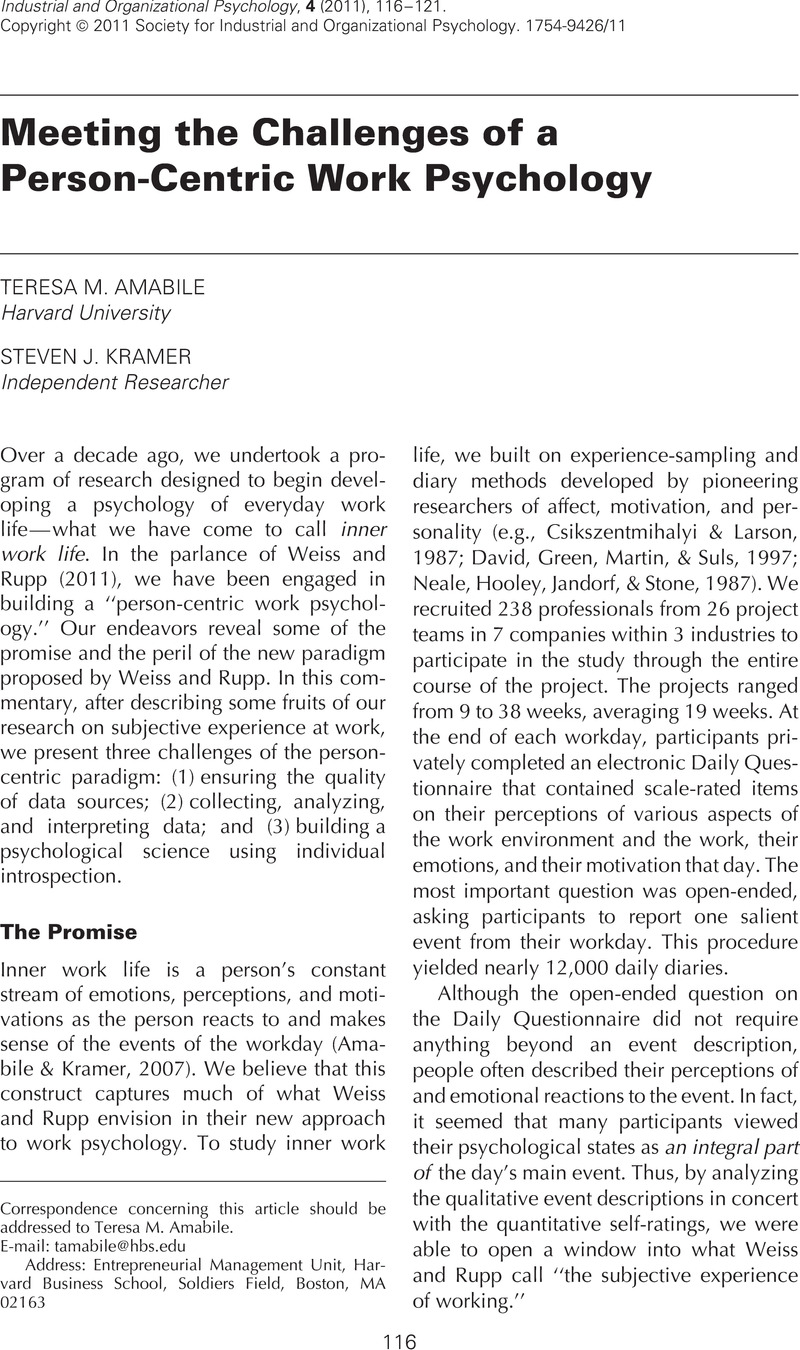Crossref Citations
This article has been cited by the following publications. This list is generated based on data provided by Crossref.
Weiss, Howard M.
and
Rupp, Deborah E.
2011.
Envisioning a Person-Centric Work Psychology.
Industrial and Organizational Psychology,
Vol. 4,
Issue. 1,
p.
138.
Majchrzak, Ann
More, Philip H.B.
and
Johnson, Jeremiah
2012.
Practices to Improve Group Creativity: A Longitudinal Field Investigation.
p.
257.
MacDougall, Alexandra E.
Baur, John E.
Novicevic, Milorad M.
and
Buckley, M. Ronald
2014.
Research in Personnel and Human Resources Management.
Vol. 32,
Issue. ,
p.
177.
Simon, Fanny
2016.
Les Grands Auteurs en Management de l'innovation et de la créativité.
p.
539.
Amabile, Teresa M.
2017.
In Pursuit of Everyday Creativity.
The Journal of Creative Behavior,
Vol. 51,
Issue. 4,
p.
335.
Amabile, Teresa M.
2019.
Educating Leaders Who Make a Difference in the World.
Perspectives on Psychological Science,
Vol. 14,
Issue. 1,
p.
7.
Hadley, Constance Noonan
2020.
The Palgrave Handbook of Organizational Change Thinkers.
p.
1.
Feldman, Elana
and
Greenway, David
2021.
It's a Matter of Time: The Role of Temporal Perceptions in Emotional Experiences of Work Interruptions.
Group & Organization Management,
Vol. 46,
Issue. 1,
p.
70.
Hadley, Constance Noonan
2021.
The Palgrave Handbook of Organizational Change Thinkers.
p.
1707.
Mumford, Michael D.
Newbold, Tanner R.
Fichtel, Mark
and
England, Samantha
2022.
Leading for Innovation.
Simon, Fanny
2023.
Les grands auteurs en management de l'innovation et de la créativité.
p.
292.
Yavuz Güler, Çiğdem
2023.
The Differentiation of Self in Work Relationships Scale (DS-WRS): Development and Initial Validation.
Contemporary Family Therapy,
Vol. 45,
Issue. 1,
p.
36.
Yeşilkaya, Mukaddes
and
Yıldız, Tayfun
2023.
What do expectations change? Optimistic expectations, job crafting, job satisfaction and a new theoretical model.
International Journal of Organizational Analysis,
Vol. 31,
Issue. 6,
p.
2793.
M A, Ebina Justin
and
Joy, Manu Melwin
2023.
Exploring Intrinsic Motivating Factors in Gamified Context: A Mixed-Method Study.
International Journal of Human–Computer Interaction,
Vol. 39,
Issue. 19,
p.
3728.
Comtet, Isabelle
2024.
Organisations post-covid : la créativité managériale comme nécessité ?.
Communication et organisation,
Vol. 65,
Issue. ,
p.
131.



